Interior Glass Doors: Balancing Light and Privacy
Interior design shapes how we feel inside a space. A bright room can lift your mood, while a dark one can feel closed in. But light is not the only factor. Privacy matters too. The real challenge for homeowners is finding a balance between openness and comfort.
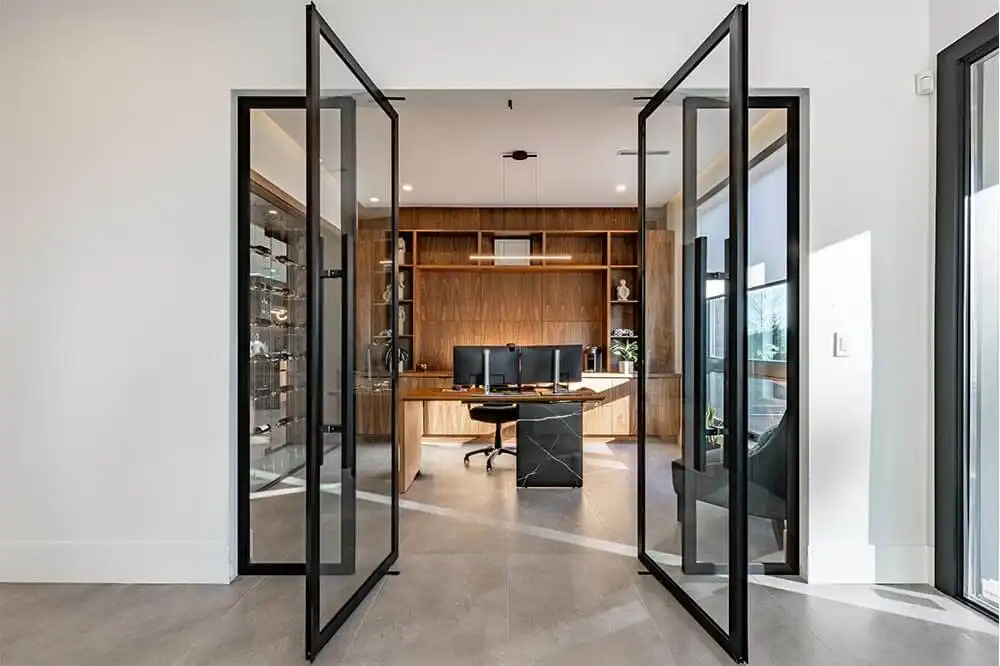
Understanding the Role of Light and Privacy in Interior Design
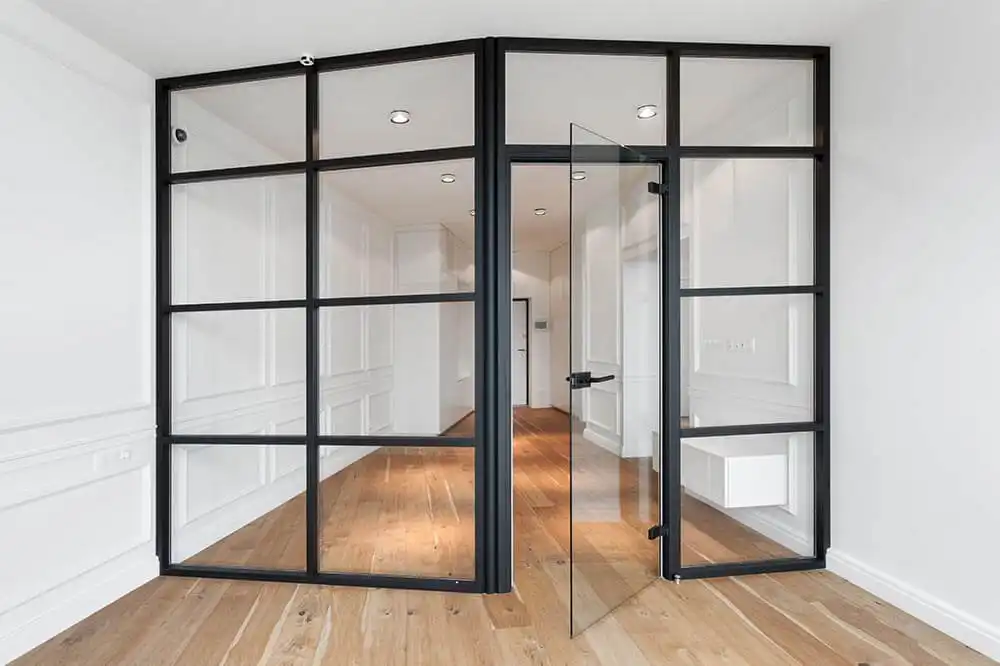
Light in Interior Spaces
Light changes everything in a home. A sunny room feels cheerful. A dark one can feel gloomy. Natural light makes spaces look bigger and more open. It also helps people feel better. Waking up to daylight sets the right mood for the day. It can even help you sleep better at night. Light saves money too. When the sun fills a room, you do not need to turn on every lamp. Glass doors and big windows let light move from one room to another. Even a small hallway feels different when it is bright. Light does not just let us see. It shapes how we feel in the space we live in.
Privacy Concerns
Privacy is just as important as light. No one wants to feel watched in their own home. Bedrooms need quiet and privacy for rest. Bathrooms need it for comfort. Home offices need it for focus. A space without privacy can feel exposed and uneasy. Thin walls or open doors can make people feel distracted. Even in bright rooms, you need areas where you can close off and feel safe. Good design makes sure privacy is never lost while adding light. It is about making a home feel both open and secure at the same time.
Balancing Both
It is not easy to get the right mix of light and privacy. Too much light can feel nice but leaves you open. Too much privacy can feel safe but a little closed off. The trick is balance. Glass doors help because they let light pass through while still giving a sense of comfort and control.
Why Choose Interior Glass Doors
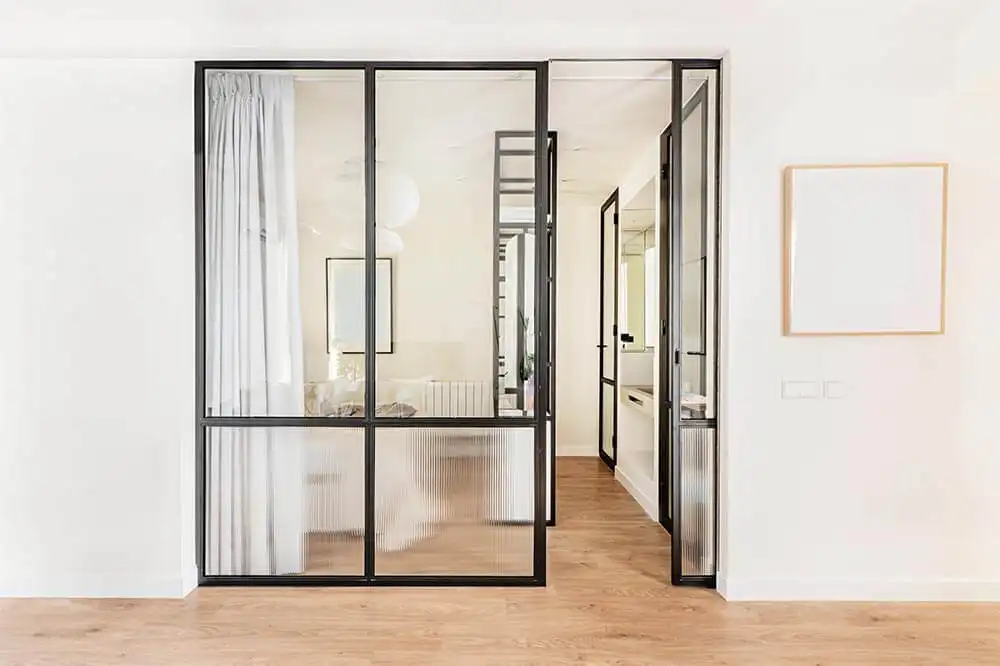
Aesthetic Appeal
Glass doors instantly change how a home feels. They look clean, modern, and elegant. Unlike heavy wood doors, glass feels lighter and more open. It blends well with many styles, from simple and minimal to classic and traditional. A glass door can act as a feature piece or stay subtle in the background. Either way, it adds charm and beauty. Many homeowners choose glass doors because they upgrade the look without much effort.
Light Enhancement
One of the best things about glass doors is how they spread light. Even a small amount of sunlight can pass through and brighten the next room. A hallway or corner that once felt dark can suddenly feel open and fresh. Light makes spaces look bigger and more inviting. With glass doors, you do not need to rely on lamps during the day. They keep the home feeling bright, warm, and welcoming.
Versatility
Glass doors can work in almost any room. They fit well in living rooms, kitchens, and even home offices. Some people use them to connect indoor spaces, while others use them to link the indoors with a patio or garden. They come in many styles, so it is easy to find one that suits your taste. Whether your home is modern, classic, or somewhere in between, glass doors can blend in and look right.
Soundproofing & Privacy Options
Modern glass doors are not just clear panels. They can be made to give more privacy and even block noise. Frosted or textured glass lets light in but keeps details hidden. Tinted glass makes rooms feel private and stylish at the same time. Some doors even come with double glass for better sound control. These options make it easy to enjoy the benefits of light without losing comfort, peace, or the feeling of privacy.
Different Types of Interior Glass Doors
Clear Glass Doors
Clear glass doors are the most basic type. They bring in the most sunlight and make a room feel open and airy. People often use them in living rooms or kitchens where privacy doesn’t matter much. These doors can make a small space look bigger and help rooms feel connected. They’re also great if you want to show off your décor or keep an easy flow between spaces. If your main goal is to brighten up a room, clear glass doors are usually the best choice.
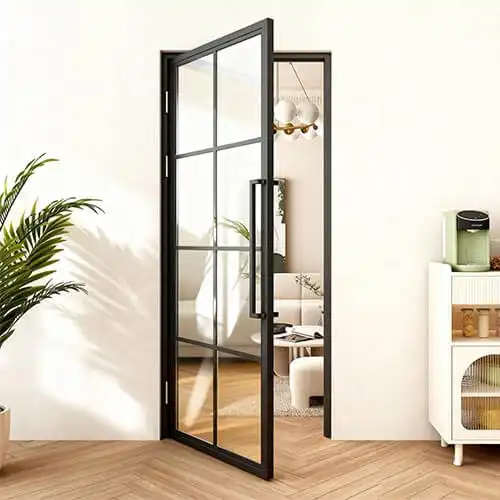
Frosted Glass Doors
Frosted glass is a smart choice when you want light but also need privacy. The cloudy surface blurs what’s behind it, so you get sunlight without clear views. That makes it perfect for bathrooms, bedrooms, or any spot where privacy really matters. These doors also add a soft and stylish look that fits in with most home designs. They bring comfort while still keeping rooms bright. With frosted glass, you don’t have to give up light just to feel private.
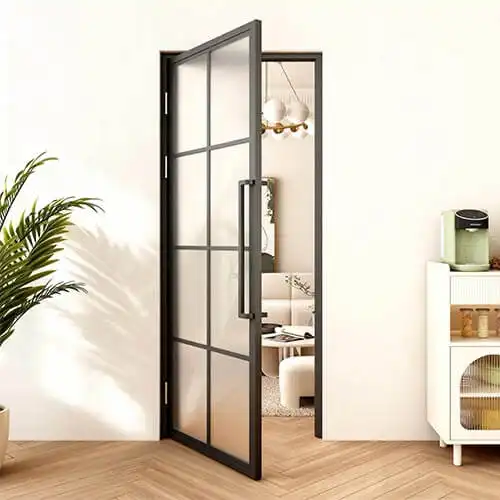
Tinted or Mirrored Glass
Tinted and mirrored glass doors are good if you want more privacy without closing off light. Tinted glass has a soft shade that makes it harder to see through. Mirrored glass reflects the room like a mirror, which can also make small spaces look bigger. People often use these doors in dining rooms, home offices, or entryways. They add a clean, modern look while still keeping the space bright. These doors work well when you want both style and privacy.
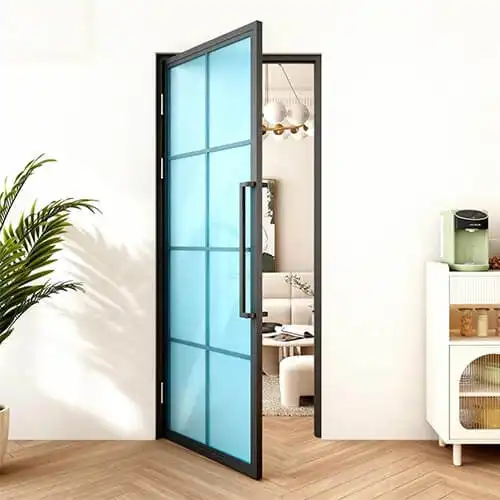
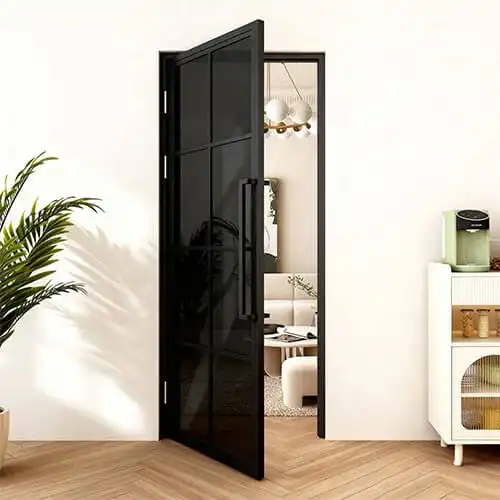
Decorative or Textured Glass
Decorative or textured glass doors add both style and function. The glass can have patterns, lines, or shapes that make the door stand out. At the same time, the design blurs what is behind it, giving some privacy. These doors are often used as a feature in living rooms, dining rooms, or entryways. They work well when you want your door to be more than just a divider. With textured glass, you get light, privacy, and a touch of art.
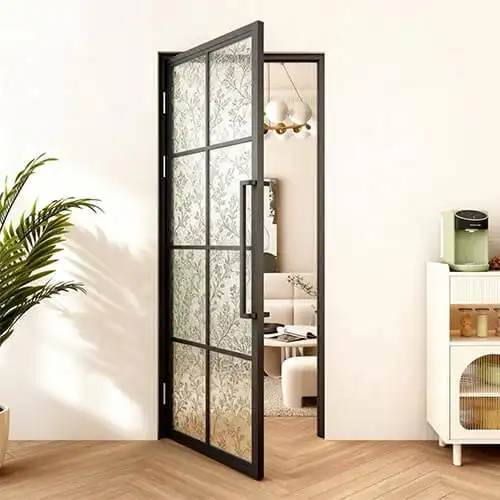
Sliding vs. Hinged Glass Doors
Sliding and hinged glass doors both have their benefits. Sliding doors move along a track, saving space and working well in smaller rooms. They are also handy for connecting to patios or balconies. Hinged doors open like a regular door and give a more classic feel. They work best in larger rooms where there is space to swing open. Both types let in light and add style. The choice depends on how much space you have and the look you want.
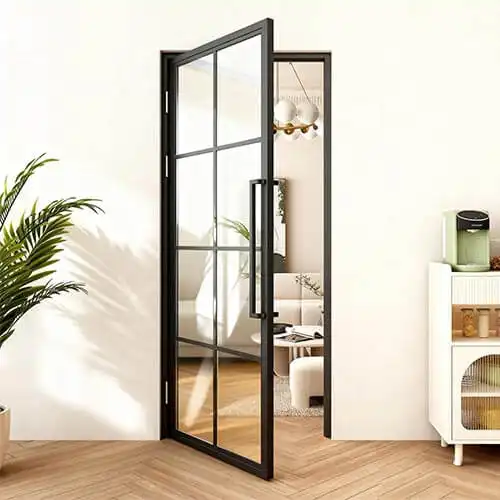
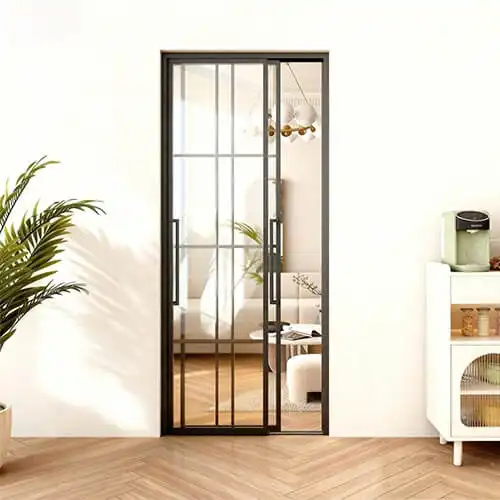
So, if you’re interested in reading more about hinged glass doors (casement doors) blog, you can go on to read What Should I Know About Casement Door?
Design Tips for Balancing Privacy and Light
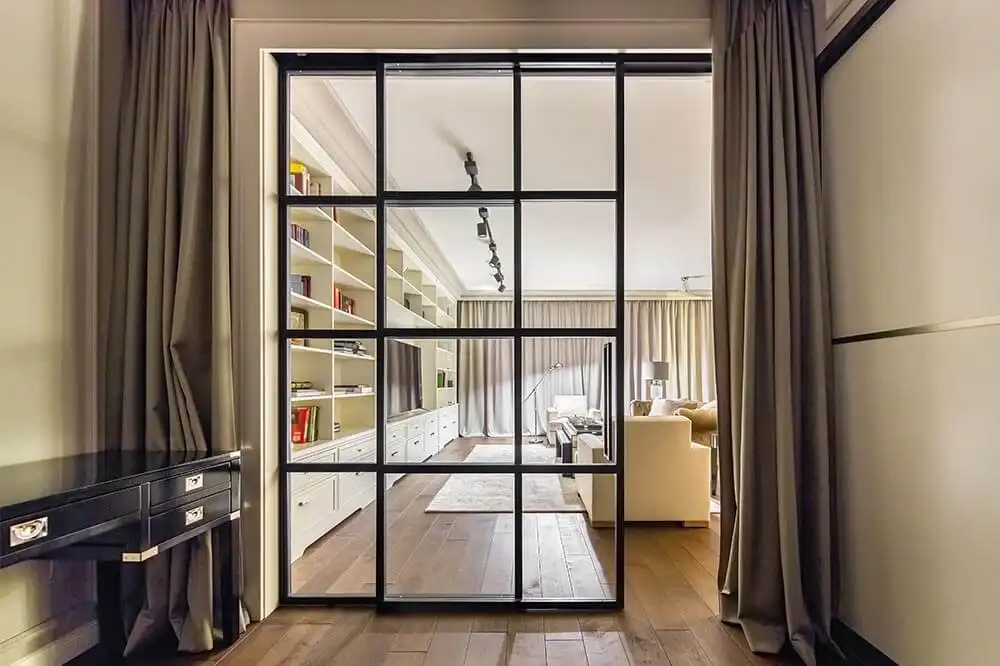
Strategic Placement
Where you place glass doors makes a big difference. If you put them facing the street, you may feel too exposed. But if you place them between rooms inside the home, privacy is less of a concern. A glass door that connects a kitchen to a dining room feels natural and open. One that leads to a hallway can brighten the space without making you feel watched. Good placement helps you enjoy light and still feel comfortable in your home.
Complementing with Curtains or Blinds
Glass doors do not have to stand alone. You can pair them with curtains or blinds for extra privacy when needed. Sheer curtains let in soft light but block direct views. Thick curtains give full privacy at night. Blinds are easy to adjust, so you can control how much light comes in. This mix lets you enjoy the openness of glass doors during the day and the privacy of a covered space when you want it.
Use of Dividers
Dividers are an easy way to add privacy without losing the light that glass doors bring in. You don’t need anything fancy. Folding screens, open shelves, or even a few tall plants can do the job. They give you a soft barrier but still keep the room bright and open. A row of plants by a glass door not only adds privacy but also brings in a fresh, natural touch. Decorative screens can make the space look stylish too. With dividers, you get the best of both; light and a little more privacy where you need it.
Choosing the Right Glass for the Space
Not every room needs the same type of glass door. Clear glass can keep living rooms or kitchens bright and open. Frosted or textured glass works better for bathrooms or bedrooms since it offers more privacy. Home offices might benefit from tinted glass to reduce glare and calm the space. Think about what each room needs before choosing. The right glass makes the space both useful and comfortable while matching your home’s overall style.
Pros and Cons of Interior Glass Doors
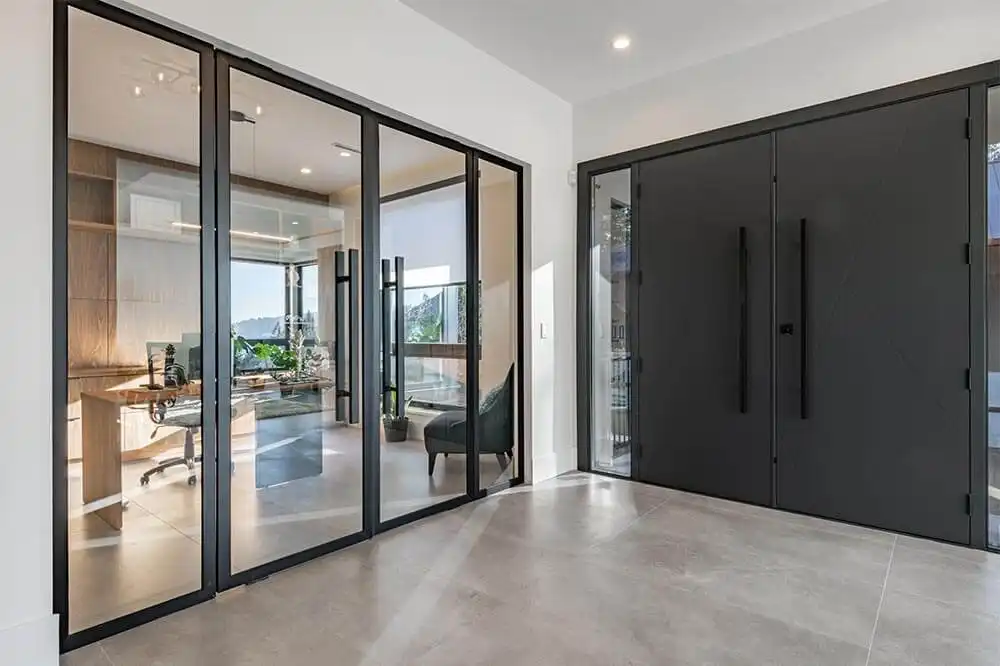
Pros of Interior Glass Doors
One of the biggest pros of glass doors is natural light. They let the sunshine move through the home, which makes every space feel brighter and more open. Even small rooms look larger when filled with light.
Another clear benefit is style. Glass doors look sleek and modern. They give a room a fresh feel without needing a full remodel. It is an easy way to make a space look more polished.
Glass doors also work well with almost any type of home. Whether you like classic, minimal, or contemporary designs, glass blends in without clashing.
Flexibility is another plus. You can choose clear for openness, frosted for privacy, tinted for a modern touch, or textured for style. Each option offers something unique. This makes it simple to pick what matches your home and your needs.
Cons of Interior Glass Doors
One downside of glass doors is privacy. If you put clear glass in the wrong place, it can feel like everyone can see in. Even frosted or tinted glass doesn’t always give the same private feeling as a solid door.
Another drawback is cleaning. Glass shows every smudge, fingerprint, or bit of dust. Kids and pets make this even more noticeable. To keep it looking good, you have to wipe it often. For some people, that extra cleaning feels like a chore.
Heat and sound can also be concerns. If the door is not well insulated, it may let heat escape in the winter or make it harder to keep a room quiet.
Lastly, glass can be fragile compared to other materials. While modern glass is strong, there is still the risk of cracks or chips. This can mean higher costs if repairs or replacements are needed.
Examples from Our Life
In one home, a hallway was dark and gloomy. The owners replaced the old wooden door with a clear glass one. Sunlight from the living room spilled into the hall, making it look open and bright. In another case, a home office added frosted glass doors. It cut noise and distractions but still let in soft light.
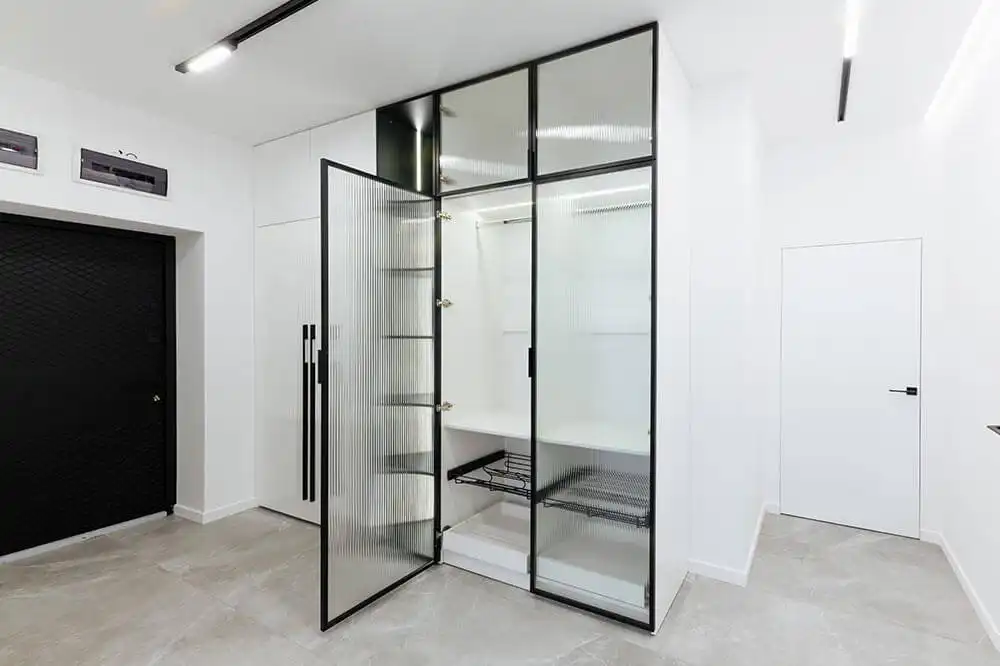
A small bathroom once felt tight and closed. After adding frosted glass, light came in without losing privacy. The space looked bigger and easier to use. In a living room, heavy doors were swapped for sliding glass. The whole area felt fresh.
Conclusion
Picture a room filled with sunlight. The light spreads across the floor and walls, making the space feel alive and warm. You feel safe too, knowing privacy is not lost. This is what glass doors bring.
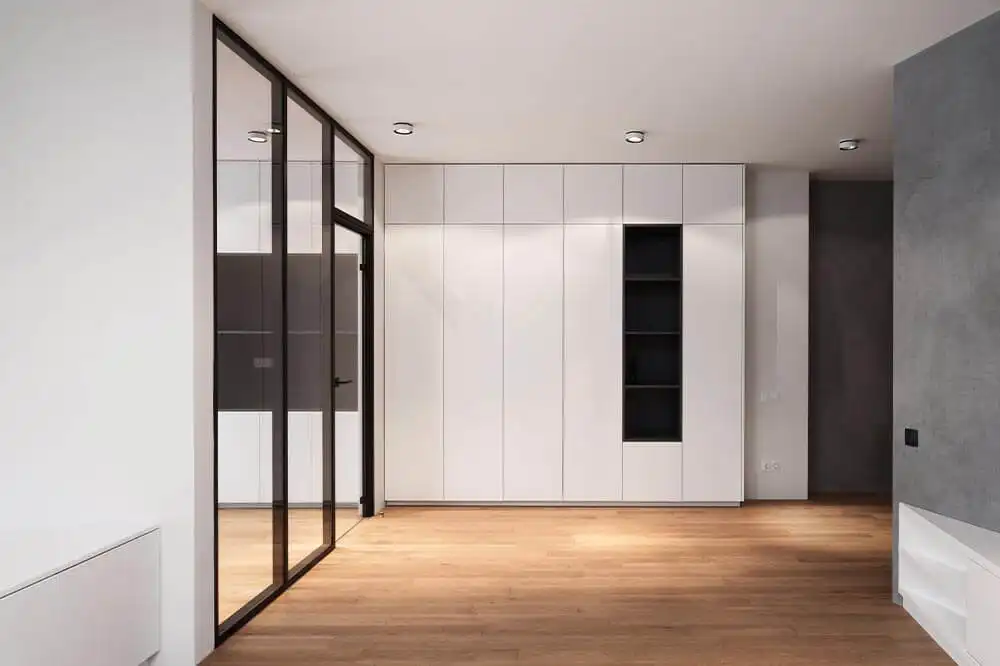
Glass doors do more than separate rooms. They shape how you live in them. Clear glass brightens living spaces. Frosted glass protects private areas. Tinted or textured glass adds character and softens the view. Each type has its role in creating comfort.
Choosing the right glass for each room turns a house into a home. It is not only about design. It is about how a space feels. A bright hallway. A private bedroom. A living room that feels open and welcoming.
Suitable and perfect glass door can transform these spaces. It gives you beauty, comfort, and light, all in one simple choice.
Other Related Articles: How to Choose Between Folding Doors and Casement Doors?
